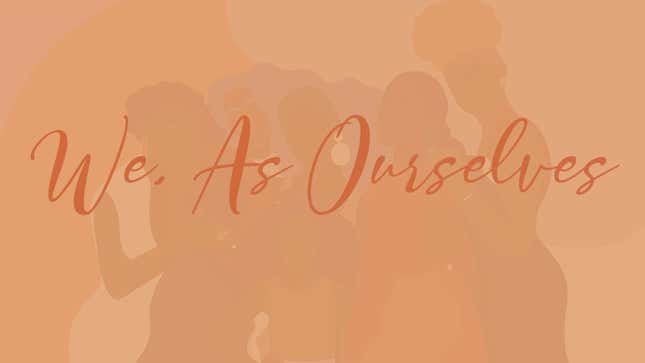
Over the past several years, we’ve increasingly been asked to listen to, believe, trust and protect survivors of sexual violence—and coincidentally, to do the same for Black women. Hopefully, we’ve been doing so, but what would it look like to create a truly safe space for open, honest, and supportive conversations about sexual violence and its impact on Black communities?
At the open of Black History Month, ‘me too.’ International, the National Women’s Law Center, and Time’s Up Foundation published a joint statement and open letter in defense of Black survivors who have come forward with their painful accounts, only to be overlooked or dismissed by the media and others. Reminding us that “Black survivors who report sexual assault or violence are less likely to be believed than their white counterparts,” the letter referenced a new spate of troubling accusations involving Black celebrities and survivors, stating:
Our stories are often quickly discarded as lies before they are even fully heard. Black survivors are not afforded the level of attention, care, and impartiality that we deserve – and problematic media and cultural depictions fuel a culture of disbelief that pushes survivors further into the shadows. Moreover, internalized shame about sexual violence has us apologizing and making space for the harm-doer without addressing the harm done or centering the survivor.
The level of violence that has occurred against Black survivors for so long demands stories and headlines that center them across all media – mainstream, Black, and non-BIPOC outlets. Amid a historic reckoning on racial justice, we can’t say that we value Black people and then remain silent when we suffer. If we aren’t actively and consistently voicing our opposition to this behavior, then we are supporting it. When Black survivors share their stories, we must hear their truth with the respect and dignity they deserve.
On Wednesday, the organizations furthered and formalized that call-to-action with the launch of We, As Ourselves, a collaborative campaign that seeks to: “1) create safe spaces where Black survivors can confront their stories; 2) upend cultural narratives that harm and silence Black survivors; and 3) build new practices wherein Black survivors are believed, heard, and supported,” per a release provided to The Glow Up, which read: “With the launch of We, As Ourselves, the organizations pledge to continue to fight for Black survivors to get healing and justice without ridicule or backlash.”
“We, As Ourselves is our love offering and our promise to not just show up, but to show up better and in full support of Black survivors, regardless of gender, sexuality, status, or ability,” said Tarana Burke, founder and executive director of ‘me too.’ International, in a statement. “With each Black survivor who is affirmed and supported through this initiative, we get one step closer to dismantling the systems that perpetuate sexual violence.”
Enlisting a powerful group of Black survivors, activists, and celebrities, on Tuesday, the coalition released a “Love Letter to Survivors,” a video tribute featuring Gabrielle Union, Tamron Hall, Valerie Jarrett, and Jurnee Smollett, among others.
Additionally, the organizations provided further background illustrating how sexual violence harms Black women, in particular, including the discriminate treatment we experience when coming forward (abridged version reprinted verbatim below; a full and comprehensive fact sheet is available on the Time’s Up website):
- Black women report experiencing workplace sexual harassment at three times the rate of white women.
- Black women who report crimes of sexual assault or violence are less likely to be believed than their white counterparts.
- A recent study found prosecutors filed charges in 75% of the cases in which a white woman was attacked, but when the victim was a Black woman, prosecutors filed charges just 34% of the time.
- Six in 10 Black women report being subjected to coercive sexual contact by age 18.
- For every Black woman who reports rape, at least 15 do not report.
- Black women report experiencing higher rates of psychological abuse.
- Half of all Black transgender women are survivors of sexual violence and two-thirds of Black transgender people said they would be uncomfortable asking the police for help.
“The labor of Black women lies at the core of our culture, our economy, and our democracy, yet our voices and our needs are continually sidelined and ignored both by the media and our institutions’ writ large,” said President and CEO of the National Women’s Law Center, Fatima Goss Graves. “Safety begins by listening to Black survivors and trusting them to know the conditions that will allow them to rise to the fullest of their potential, above the harm and trauma that continually tries to silence them.”
The Love Letter to Survivors is only the beginning of the collaboration between these three powerful advocacy organizations. During Sexual Assault Awareness Month in April, the coalition will center Black survivors in its first-ever “week of action,” an effort fueled by the knowledge that “actions speak louder than words.” Additional works in progress include: “narrative research; conversation guides; a five-part event series; and rapid-response tools to support Black survivors who come forward,” says the release.
“For generations, Black women have been excluded from the conversation and, when they are included, the narratives created around Black survivors, women, and girls are dangerous, destructive, and undermine their credibility and experiences at every turn,” said Monifa Bandele, chief operating officer of TIME’S UP Foundation. “We, As Ourselves is clear: We will no longer allow this to happen under our watch.”

